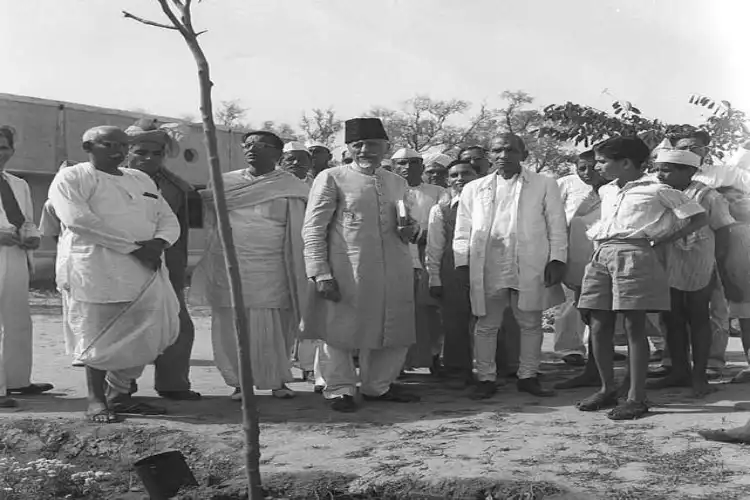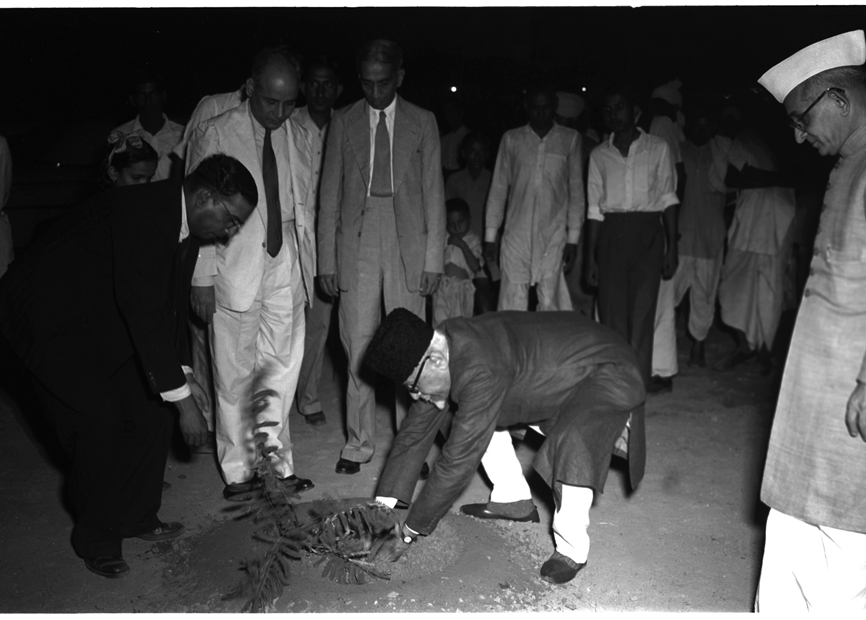
 Saquib Salim
Saquib Salim
Today on 11 November, the nation pays tributes to the illustrious freedom fighter and the first Education minister Maulana Abul Kalam Azad by celebrating it as National Education Day. Apart from displaying his portraits in public places and naming institutions after him, how much does an Indian know about his vision of Indian education? Do we realize that the present education policy resonates with the ideas expressed by Azad?
After taking over as education minister Maulana Azad held a press conference for declaring his objectives. Speaking of the education system developed by the British, he said, “There is (equally) no denying that this system has led to the creation of a small intelligentsia separated from the mass of the Indian people. It has also at times tended to divorce the educated class from the currents of India’s traditional life. Dazzled by the achievements of the West, it has at times encouraged a tendency to disown or look down upon our national heritage.”
A few months later addressing the students at Patna, Azad said, “our educated young men had lost themselves in imitating the English, in their language, dress, manners, etc. They were not mindful of their heritage. Some of them felt ashamed to talk to their countrymen in their language. They were ever ready to quote Shakespeare, Milton, Goethe, and Wordsworth but they felt no love for Valmiki, Kalidasa, Khusro, or Anis.”
A Slice Of History
Azad told the press, “It is universally recognized today that a system of national education is one of the fundamental tasks which any government faces. Not only is the existing condition of society determined by the quality of individuals composing it but its future as well. Nothing has a more important bearing on the quality of the individual than the type of education imparted.”
He attacked the education system set up by the colonizers. Speaking at the convocation of Patna University, Azad said, “I am not one of those who are the products of English universities. I am fully disconnected from them and as such can take a detached point of view and understand your needs and requirements.”
 Mualana Abul Kalam Azad planting a sapling at IARI campus, New Delhi
Mualana Abul Kalam Azad planting a sapling at IARI campus, New Delhi
Azad believed that education in India should be completely decolonized and a national curriculum with pride in Indian civilization should replace the existing system of education. He said, “it was not proper for you to lose yourself in the slavish love of western civilization or literature to the extent that you might forget the grand and proud civilization of your country”.
Azad believed, “we can say with pride and glory that it is the main trait of our ancient civilization and that we have been steeped in it for thousands of years. In other countries, differences of thought and action led to mutual warfare and bloodshed but in India, they were resolved in a spirit of compromise and tolerance….. The highest school of Vedantism flourished side by side with agnosticism and atheism. Today the world is wonderstruck at the vast all-comprehensive nature of Indian philosophy. There is no school of philosophical thought which is not found here. What we do not find is the clash of opinions or the breaking of heads merely because of the differences of opinion.”
Not that Azad was against modernity. He said, “it would be wrong to put yourself in a cage so that no ray of the light of western learning and civilization may enter it. Do not forget that you can seal all your worldly possessions within national and geographical limits but no seal can be put on learning and civilization. They are outside the pale of boundaries, and seals are of no avail there. For them, there are no territorial limits.”
Maulana Azad was a strong votary of Hindi as the national language. When he was asked to address students at the Patna University convocation in 1947, Azad started the address in Hindi. Till then every convocation address used to be in English. While breaking the norm, Azad asked the students if he should apologize for breaking the norm and address them in an Indian language. He replied to himself: “If an apology was needed, it was only for the adoption of a language forced upon us by the course of historical events. Even in our own country, we were made to give up our languages and adopt the language of a foreign country.”
He said that English as a medium of instruction makes students put in an extra effort to learn an alien language, “No Indian language but English which was foreign to us was made the medium of instruction, the result was that modern education in India began to be imparted in an un-Indian way. The Indians had to shape their minds in artificial and not in natural moulds? Not only did they have to change their language but also their minds.”
Maulana Azad further said, “The position that English occupies today in our educational and official life cannot be sustained in the future. Indian languages must find their legitimate position.”
Today when the government is being asked to promote Hindi in higher education, we should go back to Azad as he said: “In five years the Indian language will have to be so developed as to adapt itself to the official language. Its use may be encouraged gradually so that in the sixth year it may completely replace English.” in the education sector, “in the sixth year all branches of higher education should be handled through our regional languages.”
In 1951 addressing the First All India Conference on Letters, Azad said, “we have to pay special attention to the question of Hindi. We have accepted it as our national language, and the Constitution provides that it must take the place of English in 15 years. It is therefore essential that Hindi should develop sufficient strength and wealth to fulfill this important role”.
He said: “A language which we have chosen to be our national language must attain a status commensurate with that dignity. As nationals of India, it is, therefore, our duty to try to enrich the literature of Hindi and see that first-rate literature is produced in it.”
The present governments are facing criticism for surveying Madrasa not knowing that it is derived from Azad’s education policy. He believed that in India religious education should not be left to private entities and no government supervision. He said, “What will be the consequence if the Government undertakes to impart purely secular education? Naturally, people will try to provide religious education to their children through private sources. How these private sources are working today or are likely to work in the future is already known to you. I know something about it and can say that not only in villages but even in cities the imparting of religious education is entrusted to teachers who though literate are not educated. To them, religion means nothing but bigotry. The method of education, too, is such in which there is no scope for a broad and liberal outlook.”
Today writing history with a nationalist vision is seen as a volatile issue. Maulana Azad believed that after independence India needed to have its national history. At several places, he asked scholars to reassess the already used historical sources to write history in a noncolonial context.
In his words, “we must see that there is no wrong perspective of a nation’s history and culture nor a failure to encourage the highest ideals in national character and civilization. Unfortunately, this has happened in India”. Somewhere else he urged the Indian historians, “It is for you, historians and archivists, to prepare a programme of work. Let your labours yield material for writing a full history of India throughout the ages, in which the story of cooperation and common endeavour, the development of civilization and culture, and the growth of arts, philosophy, religion, and humanity will be told in all their wealth. That and not the mere record of wars and conflicts, of dynasties and kings, is the true history of India.”
ALSO READ: Sufism cannot be separated from Islam: Author Rana Safvi
A cursory look is enough to understand that the present education policy resonates with the dream of Maulana Azad and thus pays true tribute to the first Education minister of free India. India is on the path of decolonizing history, education, culture, and language and is ensuring its nationalization as envisioned by Maulana Azad.
